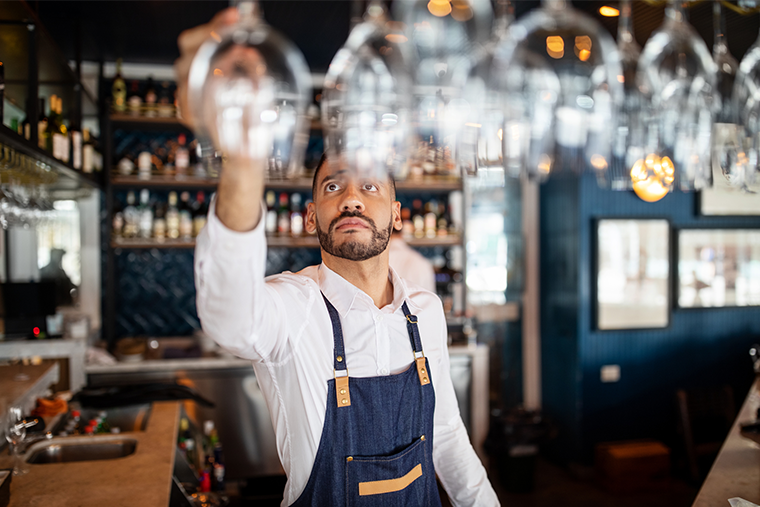With the advent of Freedom Day coming for businesses in NSW and Victoria, now more than ever it’s important for business owners to remember the basics of running their own businesses without having the fall back of the various government stimulus packages that they have received.
Whilst there are numerous strategies that could be employed we look at five key strategies that should be reviewed as you get ready for the starters gun to be fired in October to ensure that your venues are geared for growth:
1. Quality control for all to see – Corona's not Coronavirus
Your venues already have food safety practices in place, but those practices need to of course continue to rapidly incorporate the pandemic realities. Consumer evaluation of your brand's preparedness will greatly impact how they view both your brands' safety and level of social responsibility as you allow people in as opposed to on your sidewalk. No one wants to be the venue that hits next weeks news for a COVID-19 related issue. You may even be forced to shut as staff self isolate, losing you valuable cashflow. Make sure you have strict measures in please to avoid the spread of COVID-19, that your team are well trained and confident in them so they can easily explain them to customers.
Make your efforts visible to customers to ensure they feel safe. Use clear checklists that can be copied across multiple venues to ensure consistency across the board.
2. Adequate staffing levels
One of the most important things to think about when reopening your hotel, restaurant, bar or cafe will be how many staff you have on shift. While having too much staff will risk unnecessary overheads, being short-staffed will have a significant effect on your bottom line and your ability to hold on to great team members. If your guests are waiting longer than fifteen minutes for a drink or food order, they will order less during the time they are with you or worse still go elsewhere. Without stating the obvious no business can afford to miss out on sales due to being understaffed. Give people a great experience now during the post lockdown rush – they will be sure to stay loyal and come back to you during the quieter times.
Remember, if you look after your staff, they in turn will look after your customers. From initial and regular check-ins with staff about their mental wellbeing, to conversations about future development, don’t neglect this area of people management. We’ll be seeing huge recruitment drives due to the continual staff shortages and venues will be fighting for the best staff. Think about refresher training for staff that may have been out of work for at least a few month, if not far longer and remember most people will not return to a venue once they have had a bad experience.
3. Plan activation events for your Freedom Day
Many operators have adapted to the dine-in prohibitions with curbside, drive thru, and delivery businesses. These new business models had to be launched with a promotional program the same way as any other business. Similarly how are you going to win customers over to your venue compared to competitors when Freedom Day arrives. To build awareness in the community, some are executing a promotional launch day that simultaneously raises money for their #feedfirstresponders program.
4. Run various what if scenario financial modelling
The nominal revenue lockdown period we’re currently in will prove to be much easier to understand than what Food and Hospitality businesses are entering into as the economy comes back to life. As more staff are brought back onto the payroll and the operating expenses of the business begin to grow larger, many of your businesses will go through the highest-risk period of this crisis. Understanding your company's burn-rate and the unit pricing of the different scenarios on the front-end, will enable proper labour planning, particularly in the context of how to best deploy funds.
5. Optimise your cost of goods sold (COGS) now
Associated with financial modelling, the pressures on occupancy and labour expenses will only become greater in the post-COVID-19 stimulus and lower sales environment. Making all possible strategic changes to menu-pricing, packaging, and portioning that can move the needle on the COGS line will be more important than ever when your restaurants return to operations at higher capacity.
If you have any questions regarding the above, please contact Director of Business Services and Taxation Colin Samuel or your Prosperity adviser.
